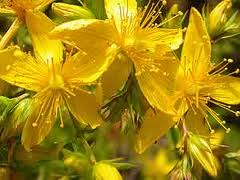When you get the right kind, St. Johns Wort Works for Depression

Depression is characterised by depressed mood and/or loss of interest or pleasure in nearly all activities and a variety of other symptoms for periods longer than two weeks. Extracts of St. John's wort (botanical name Hypericum perforatum L.) are prescribed widely for the treatment of depression.
We have reviewed 29 studies in 5489 patients with depression that compared treatment with extracts of St. John's wort for 4 to 12 weeks with placebo treatment or standard antidepressants. The studies came from a variety of countries, tested several different St. John's wort extracts, and mostly included patients suffering from mild to moderately severe symptoms.
Overall, the St. John's wort extracts tested in the trials were superior to placebo, similarly effective as standard antidepressants, and had fewer side effects than standard antidepressants. However, findings were more favourable to St. John's wort extracts in studies form German-speaking countries where these products have a long tradition and are often prescribed by physicians, while in studies from other countries St. John's wort extracts seemed less effective.
This differences could be due to the inclusion of patients with slightly different types of depression, but it cannot be ruled out that some smaller studies from German-speaking countries were flawed and reported overoptimistic results.
Patients suffering from depressive symptoms who wish to use a St. John's wort product should consult a health professional. Using a St. John's wort extract might be justified, but important issues should be taken into account: St. John's wort products available on the market vary to a great extent. The results of this review apply only to the preparations tested in the studies included, and possibly to extracts with similar characteristics. Side effects of St. John's wort extracts are usually minor and uncommon. However, the effects of other drugs might be significantly compromised.
We have reviewed 29 studies in 5489 patients with depression that compared treatment with extracts of St. John's wort for 4 to 12 weeks with placebo treatment or standard antidepressants. The studies came from a variety of countries, tested several different St. John's wort extracts, and mostly included patients suffering from mild to moderately severe symptoms.
Overall, the St. John's wort extracts tested in the trials were superior to placebo, similarly effective as standard antidepressants, and had fewer side effects than standard antidepressants. However, findings were more favourable to St. John's wort extracts in studies form German-speaking countries where these products have a long tradition and are often prescribed by physicians, while in studies from other countries St. John's wort extracts seemed less effective.
This differences could be due to the inclusion of patients with slightly different types of depression, but it cannot be ruled out that some smaller studies from German-speaking countries were flawed and reported overoptimistic results.
Patients suffering from depressive symptoms who wish to use a St. John's wort product should consult a health professional. Using a St. John's wort extract might be justified, but important issues should be taken into account: St. John's wort products available on the market vary to a great extent. The results of this review apply only to the preparations tested in the studies included, and possibly to extracts with similar characteristics. Side effects of St. John's wort extracts are usually minor and uncommon. However, the effects of other drugs might be significantly compromised.